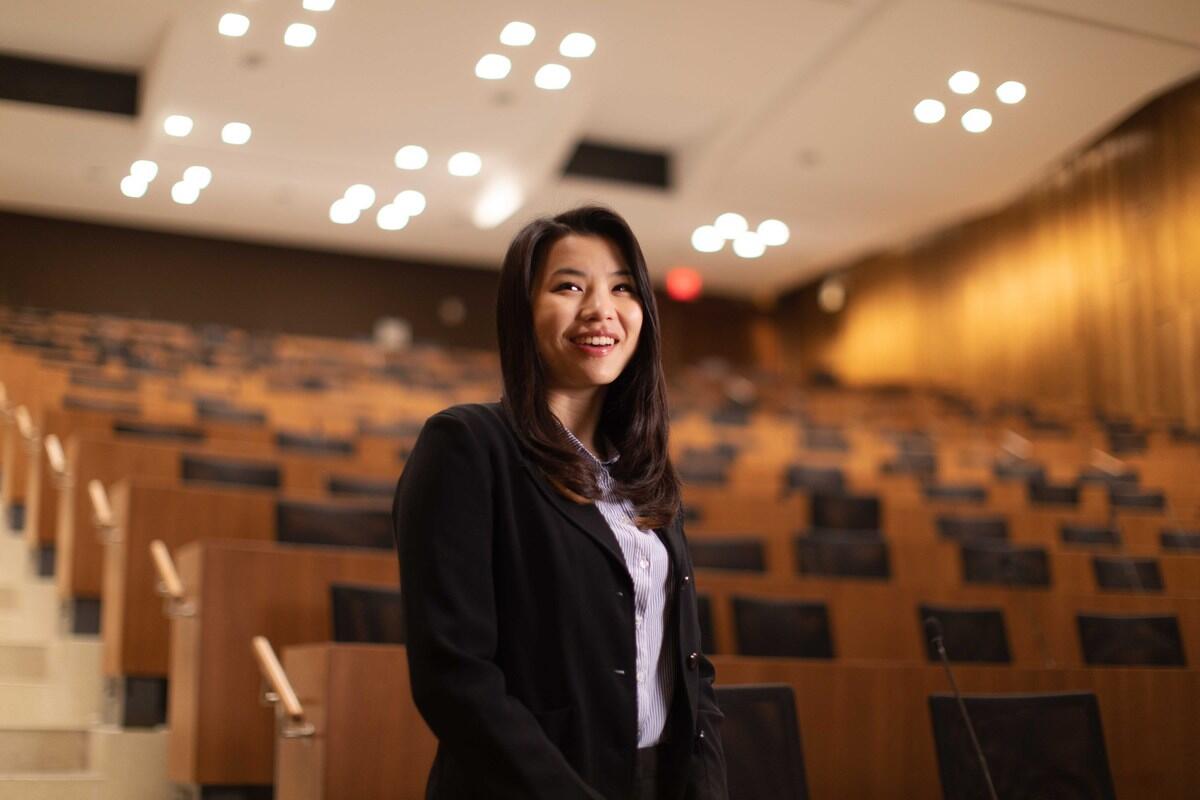
March 15, 2023
Class of 2023: Nicole Ng is dedicated to advancing the field of hepatology for underserved patients
Share this story
Nicole Ng never dreamed about becoming a doctor, but after volunteering with a community health organization in college, Ng discovered a passion for health care. Now a fourth-year medical student at the Virginia Commonwealth University School of Medicine, Ng is on track to graduate this spring and plans to pursue internal medicine with a focus in hepatology.
During her time at VCU, Ng has sought opportunities to serve diverse, underserved communities, and she discovered a passion for hepatology research. In October 2022, among liver experts from around the world, Ng was the only medical student to present at the newly established Stravitz-Sanyal Institute for Liver Disease and Metabolic Health’s inaugural academic symposium.
Science and self-discovery
From an early age, Ng had a fascination with problem-solving and science. She grew up reading mysteries by popular authors such as Agatha Christie and watched television programs such as “CSI,” and this desire to find solutions to complex problems led Ng to study molecular, cellular and developmental biology at the University of California, Los Angeles. At UCLA, Ng got involved with APA Health CARE, an on-campus group that aims to improve health care access in underserved Asian and Pacific Islander, or API, communities. Through community outreach and volunteering at health fairs, Ng made a critical discovery.
“I realized I was a very extroverted person," Ng said. "I just love working with patients."
This set her on the path to medical school.
APA Health CARE also introduced her to the impact of liver diseases, and subsequently liver research, which struck a personal chord. Ng’s grandfather died from cirrhosis of the liver when she was young, and she has since developed a deeper understanding of the liver-related health disparities among API communities. According to the American Liver Foundation, Asian Americans have the highest incidence of hepatocellular carcinoma, the most common type of liver cancer; 1 in 10 foreign-born Asian Americans are chronically infected with Hepatitis B; and Asian American women are nearly twice as likely to develop liver cancer than non-Hispanic white women.
“There is a lot of potential with studying hepatology, and I just want to know more and do more,” Ng said. “There is so much more we do not know, and so much more needs to be done.”
‘The best part about research is that it never stops’
As a person of color interested in providing care to underserved communities, Ng was drawn to Richmond and to VCU.
"The experiences I’ve been afforded here have been drastically different than if I had stayed in California,” she said. Access to a diverse patient population was a key component in choosing a medical school, and Ng said she’s proud and humbled to have treated patients with a vast range of backgrounds including those from Black, indigenous, refugee, Spanish-speaking and Arabic-speaking communities.
Medical school has also enhanced her interest in research. Ng has served as the academic education and research director for the Asian Pacific American Medical Student Association since 2021, where she pioneered the organization's first journal club series and organized a research poster session at the 2022 national conference. “The best part about research is that it never stops,” she said.
Under the mentorship of Arun Sanyal, M.D., director of the Stravitz-Sanyal Institute for Liver Disease and Metabolic Health and interim chair of the Division of Gastroenterology, Hepatology and Nutrition, Ng has participated in multiple liver-related studies.
Experts call liver disease a “silent killer” because it can go undetected for years, oftentimes until surgery becomes the only viable option for treatment. At the liver symposium last fall, Ng presented the research she and Sanyal have conducted surrounding second harmonic generation imaging, or SHG, which identifies and marks collagen that appears in the scarring of liver tissue. This technology allows hepatologists to more precisely determine if scarring is improving or worsening.
“Our goal for the liver institute is to establish a platform that supports the next generation of liver care providers and investigators,” Sanyal said. “The future of liver health requires both community-based approaches for preventing liver disease and precision tools to identify the unique drivers of diseases at an individual patient level. A student like Nicole is representative of VCU’s strides towards global health advancement and leadership within the field of hepatology.”
As Ng prepares to graduate and begin residency training, she is eager to pursue a career that serves diverse populations and future hepatologists through equitable patient care, continuous education and innovative liver research.
“Some people do it all, and maybe I can too.”
Subscribe to VCU News
Subscribe to VCU News at newsletter.vcu.edu and receive a selection of stories, videos, photos, news clips and event listings in your inbox.







